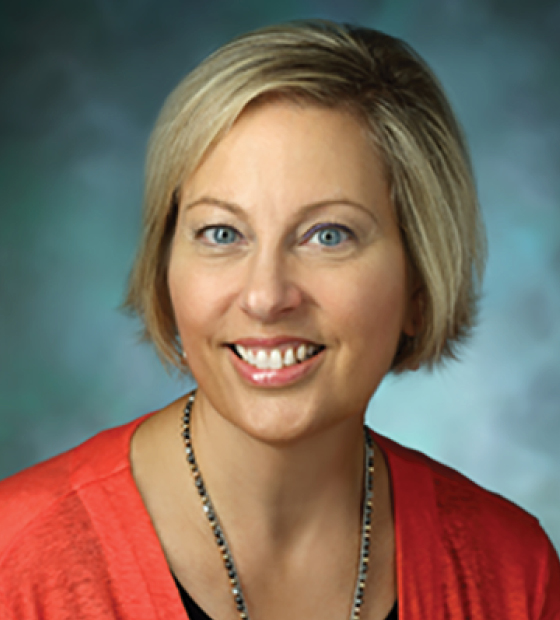
While reflecting on ACCP’s founding 40 years ago, I was struck to see that one woman was among the list of names. Dorothy L. Smith is the only woman listed as a founding member of the College. I was curious what circumstances brought her to be at the inception of the College in 1979. This is even more impressive when considering that, according to Dr. Metta Lou Henderson (one of my mentors from Ohio Northern University), only 62 women had full-time faculty appointments in 1972 and women made up only 4% of the total practicing pharmacist population at that time.1 What circumstances led Smith to be at the AACP meeting when ACCP was founded? And what trajectory has her career taken since 1979?
A quick search revealed that Smith has devoted her career to patient and consumer education. After receiving her pharmacy education, she completed a residency at the University of Saskatchewan in Canada, where her research project was to take medication histories on newly admitted patients and counsel patients on their medications before discharge. This was quite novel at the time. After practicing for a few years, Smith attended the University of Cincinnati for her Pharm.D. degree, where she came under the mentorship of Donald Francke. He recognized her passion early on and invited her to write a chapter on patient counseling in Perspectives in Clinical Pharmacy. Her clinical practice from the beginning was in the ambulatory setting, where she established one of the first ambulatory patient counseling programs in Canada, with all patients receiving counseling. She has written several books on patient and consumer education and was an editor of the Handbook of Nonprescription Drugs while at APhA. In 1983, Smith founded the Consumer Health Information Corporation, whose mission reflects her passion: To serve the patient because:
The patient is the most important member of the health team. The patient decides if, how, and when to take medicine. Without enough information, consumers will continue to make serious home medication errors. With high-quality information, consumers will be able to manage their medications safely. (www.consumer-health.com)
Smith has focused her career on helping patients since the early days of her clinical practice. At that time, patients were experiencing unnecessary side effects and dying because they did not know how to manage their medications. In 2011, the cost to patients and the health care system from adverse medication outcomes was $177 billion (https://www.ncbi.nlm.nih.gov/pubmed/11297331#). More recently, the cost of non-optimized medications was estimated to be $528 billion (https://doi.org/10.1177/1060028018765159). Pharmacists can significantly influence these metrics and, more importantly, improve patient outcomes by providing patient counseling and optimizing patients’ medications.
To this end, ACCP recently announced that it had joined the new GTMRx Institute as a founding member on the GTMRx Board of Directors. The aim of the new institute is to raise awareness of and champion a solution for the effective and appropriate use of medications – quite simply, to Get the Medications Right™. The organization’s belief statements are:
- A personalized, patient-centered, systematic and coordinated approach to medication use will vastly improve outcomes and reduce overall health care costs.
- Systems of care must be aligned to integrate comprehensive medication management (CMM), engaging patients to ensure that they are willing and able to take the medications that are indicated, effective, and safe to optimize their outcomes.
- Immediate delivery system, payment, and policy transformation is needed to streamline clinical trials and reduce the costs of bringing drugs to market while enabling successful, broad-scale adoption of integrated CMM services.
- Appropriate diagnosis and access to advanced diagnostics with companion/complementary and pharmacogenetics testing is essential to target correct therapy.
- Success requires team-based, patient-centered care models that recognize appropriately skilled clinical pharmacists as medication experts who work in collaborative practice with physicians and other providers.
By joining GTMRx, ACCP affirms its professional commitment to medication optimization, CMM, and a patient-centered, team-based system for health care delivery.
I had the opportunity to speak with Dr. Smith recently. I asked her to share her thoughts on medication optimization and ACCP’s efforts to “Get the Medications Right.” She reminded me that we need to think about the other half of the equation – the patient. “The patients hold the power,” she said. Indeed, if patients don’t understand how to take their medications, we won’t achieve the desired outcomes. Patients are part of the team, and we need to include them in shared decision-making and be aware that behavior modification can positively influence patient adherence and outcomes. If done correctly, good patient education together with behavior modification can positively affect patient adherence and outcomes. Smith also suggested that patient adherence should be measured in clinical trials to help inform pharmacists and physicians regarding how to improve patient education and medication adherence.
When I asked what ACCP should focus on as the College enters the next 40 years, her response was quick – patient education. We must ensure that pharmacists know how to interact with patients and that patients understand medications and adherence. We need to have empathy for our patients and understand their viewpoints so that we can positively influence their care. Pharmacists across all practice settings should work with patients and consumers to achieve medication optimization.
As we look forward to the next 40 years of ACCP, it is sometimes necessary and enlightening to reconnect with our past to chart the path forward. “It takes a lifetime to change the profession of pharmacy,” Francke told Smith at her graduation. Let’s continue the journey together with our patients as part of the team to realize medication optimization, and perhaps it won’t take a lifetime. I am looking forward to meeting Dorothy Smith and many other ACCP founding members at the Annual Meeting in New York City in October 2019. I hope to see you there as well.
Reference:
- Henderson ML. Women in pharmacy: twenty-five years of growth. Ann Pharmacother 2000;34:943-6.